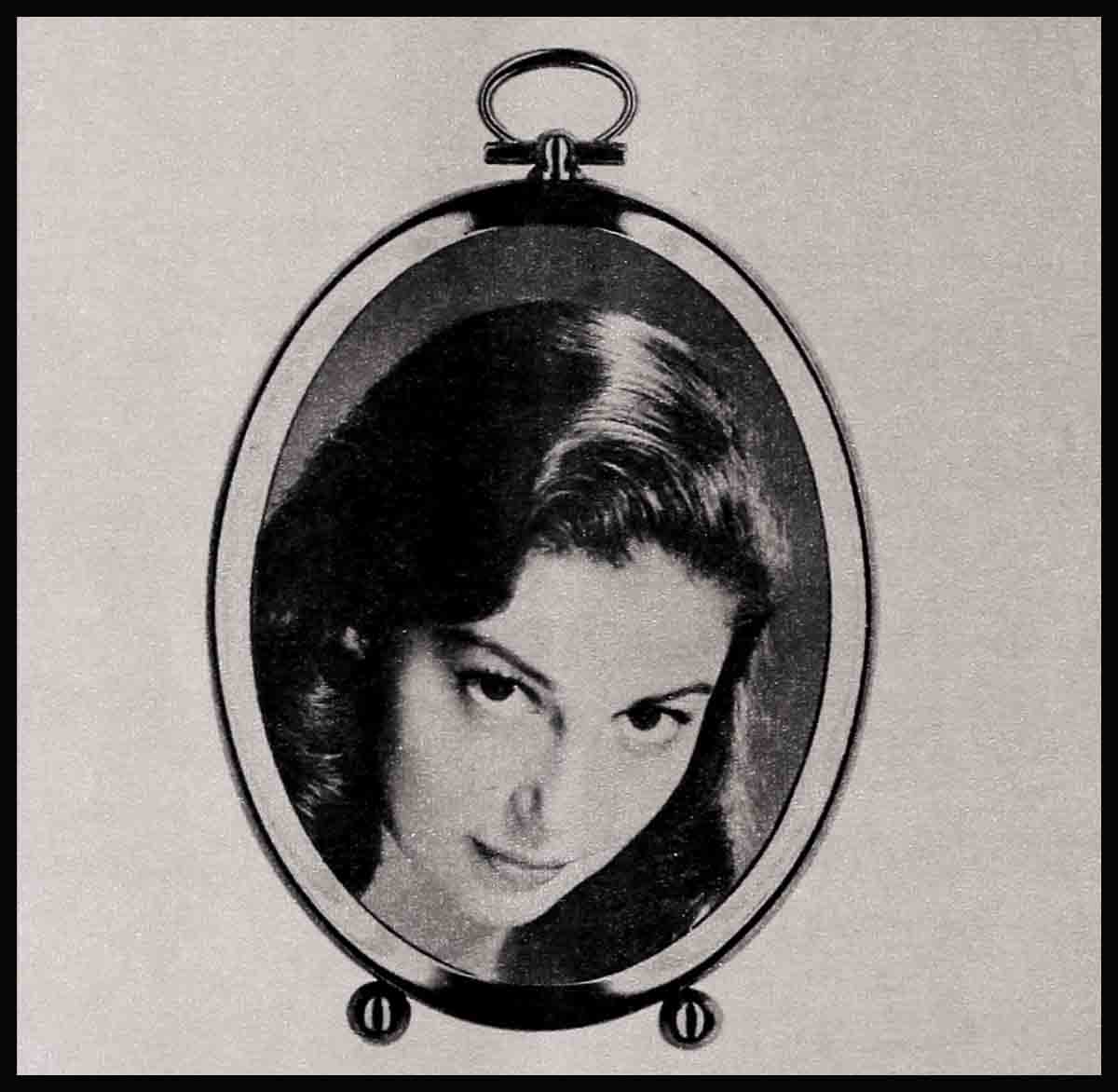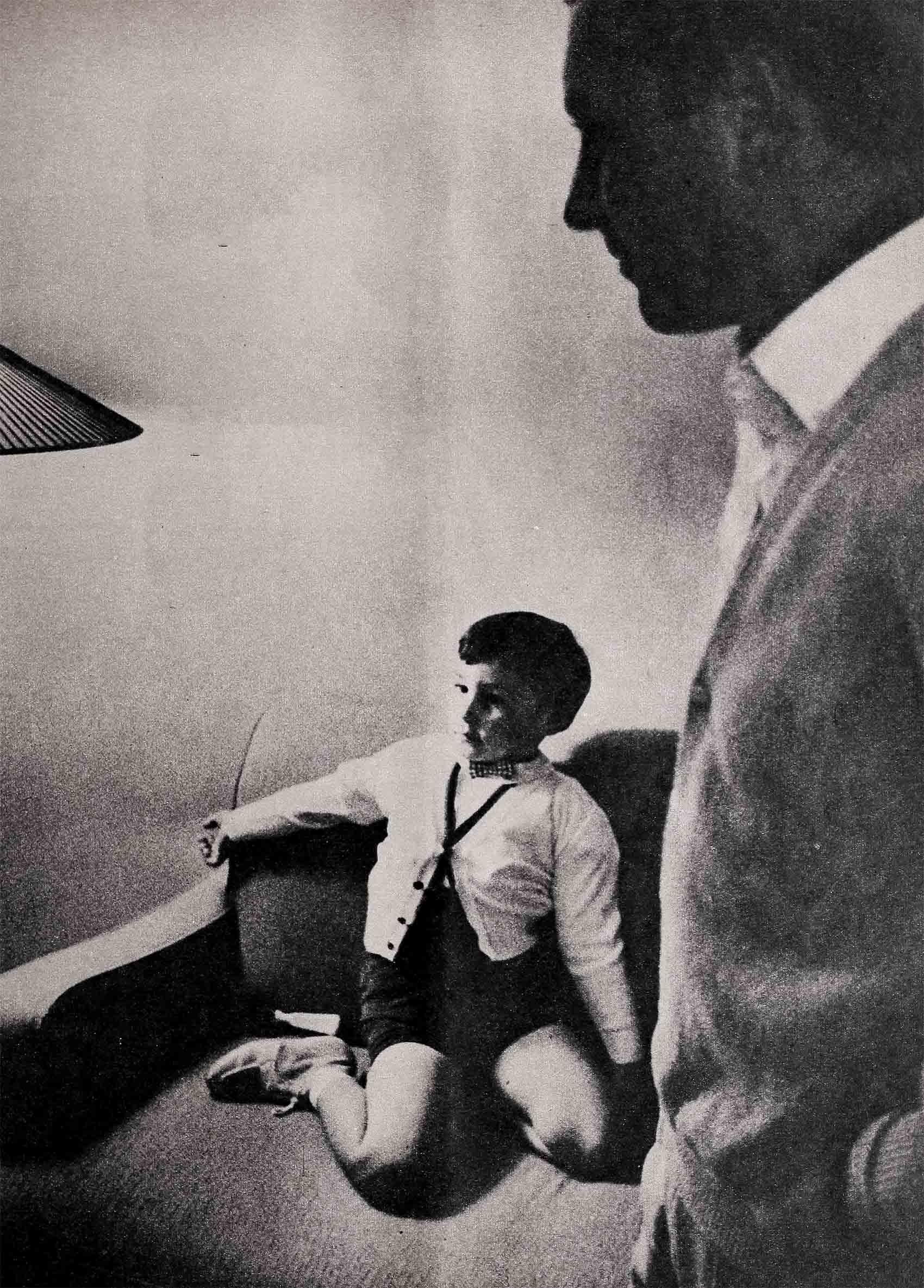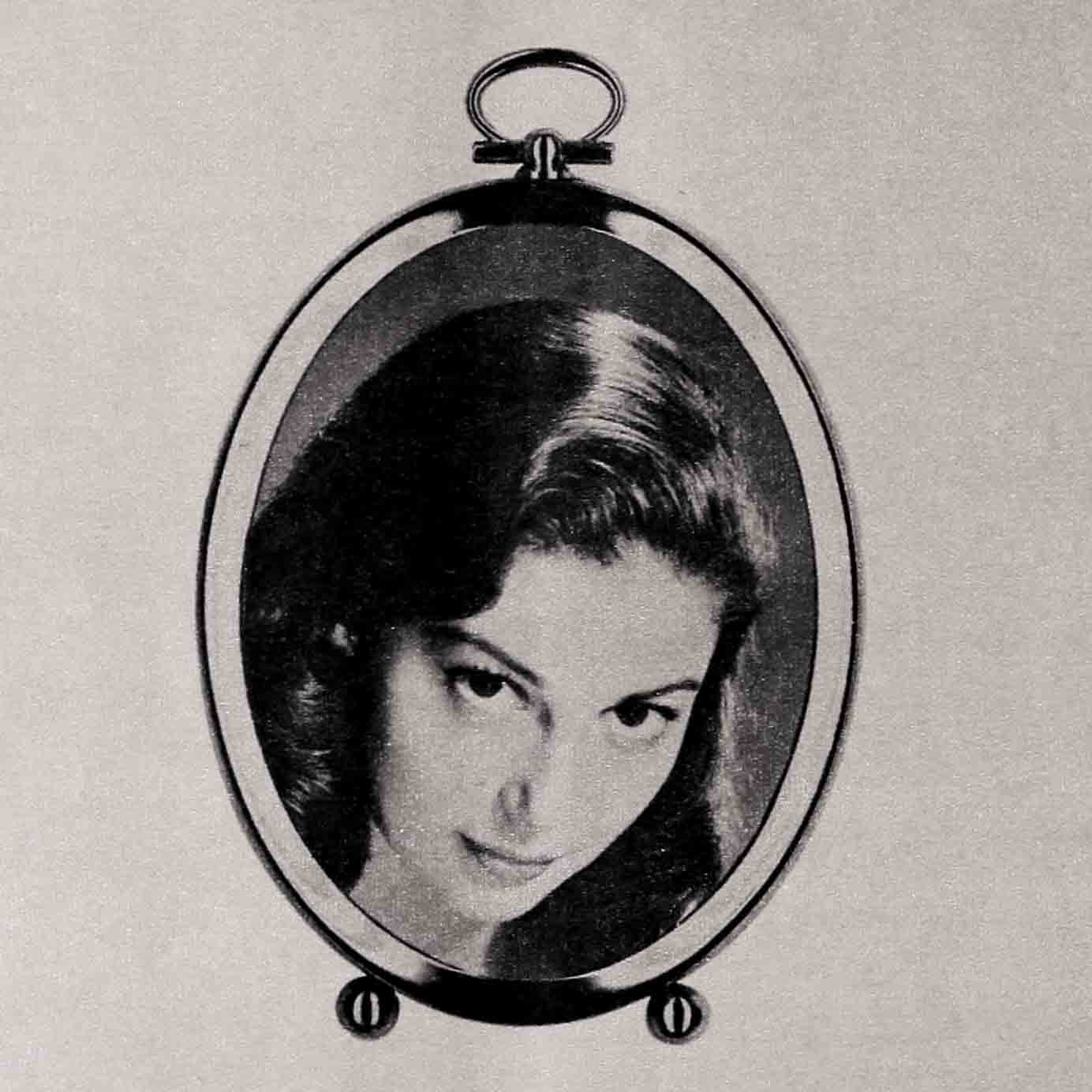
Can A Man Ever Forget The Woman He Loved?—Vic Damone & Pier Angeli
Vic Damone leaned dejectedly against the wall of his living room and began toying with the empty coffee cup in his hands. “Might have been. . . . Those are the saddest words I ever heard,” he said. “It describes something that’s over; something that can never be again.” He looked down at the floor. “My marriage was like that. It might have been the most beautiful thing in the world. That’s the way it started. . . .
“Anna (Pier Angeli) was the most beautiful woman I’d ever seen, so different from any of the girls I’d ever known. We had met in Germany when I was in the Army and she was making a picture there and we dated immediately. But it took me two years until I was earning enough so I could ask her to marry me and share my life. I wouldn’t have waited two years, but I was as good as dead in show business when I got out of the Army. Completely forgotten. I had to start, again, from scratch.”
Pier, whom he called Anna, and Vic were married November 24, 1954, in St. Timothy’s Church in Hollywood. She was twenty-two, he was twenty-six. After the honeymoon, they went to live in a little rented house.
“When we were first married,” Vic went on, “I knew I had found a wonderful wife. But after two or three years, I realized that I had found the greatest thing in the world. If only it could have continued that way. . . he sighed as though asking himself what brought about the sudden change? What made a perfect marriage end? He’d once said of his divorce, “Nobody knows what a raw deal I got.” Now, for the first time, he seemed willing—almost compelled—to try to talk about it. And maybe to get the memories out of his heart where they were hurting him so.
“I hardly know how to say this,” he began, “but—I was so happy with Anna that I was afraid! I used to think, maybe I don’t deserve this much from life and it’ll be taken away from me. I never went away on a trip without being afraid something might break it up for me—the house might burn down while I was gone, or the plane would crash and kill me. Every chance I got, I’d rush to a phone and call her long distance so I could hear her voice saying ‘I love you.’ Eight, nine calls a day I’d make, they were my lifeline between her and me. I had to know she was still there, safe. I had to hear her tell me everything was all right.”

Then came trouble
Then the trouble began. Mrs. Pierangeli, Pier’s mother, decided, it seemed, that Vic was not a suitable husband for her daughter. “He’s just a night club singer,” she kept saying.
“But it didn’t stop there,” Vic said, and suddenly he was silent. He didn’t want to go on, it was too bad a time to bring back, even with words. But finally he began again wearily. “Day after day, she bombarded Anna with reasons why I was no good for her. I began to see that I was a nobody from Brooklyn married to a million dollar star. I couldn’t miss the point, with Anna’s mother keeping at her with the criticisms—I was a nothing . . . I had no real talent . . . I traveled too much to be a good husband . . .”
And then, when they should have been the happiest, when they should have felt closest, then came the real showdown. It was the day Anna came home from the doctor with the wonderful news that she was going to have a baby. Vic was thrilled and proud that his wife was going to give him a child of their love. But Mrs. Pierangeli was furious.
Vic looked up, his bewildered eyes revealing, again, the hurt of that clash more p than five years ago. “She accused me of planning the baby to deliberately interfere with Anna’s career. It wasn’t true. I never asked Anna to stop making movies, I was never jealous of her success. But I lost my head—I got as hotheaded as Mrs. Pierangeli, and we both said things we shouldn’t have. I—I asked her to leave my house.”
And then the worst clash of all brought everything to a boiling point. It happened the day Perry was born. For Anna, the labor had become agonizing and dangerous as aftermath to a plane injury during her pregnancy. The doctor came out to ask Vic’s permission to perform a Caesarean. Her mother cried out, “No, I don’t give you permission. You have no right!”
“Dear God, Mama,” Vic pleaded, “do you want Anna to die?”
But the distracted mother kept sobbing out her refusals. Finally, the doctor said softly, “I’m sorry, Mrs. Pierangeli, but it’s the husband’s right to decide a thing like this. Don’t worry, she’ll be all right.”
And she was. But nothing was ever right again between Vic and his mother-in-law.
He sank into a chair, his shoulders drooping. “I loved Anna so much,” he murmured. “But I guess she didn’t care any more.” He sat looking down at his hands lying idle in his lap, and remembered . . .
It was the night before he was to leave for Europe on a six-week singing engagement. Pier told him that she had asked her drama coach to have dinner with them. Vic was disappointed. He wanted to be alone with her on their very last evening together for a month and a half. “I just wanted to have a few hours alone with Anna. I wanted to say goodbye and tell her how much I’d miss her,” he explained. But Pier refused to cancel the dinner appointment.
“At least we’ll have a little time together after she leaves,” Vic had thought. But then they decided that this all-important evening was the perfect time for Pier to rehearse her part for next week’s television play. They asked Vic if he wouldn’t stay in the room while they rehearsed. Pier then worked herself to the point of exhaustion. When, in the wee hours of the morning they finished, Vic found Pier fast asleep on the sofa. “I was determined not to leave without spending some time with my wife,” he recalled. “I made dozens of frantic phone calls to the airlines until, in the middle of the night, I finally arranged to leave one day later. Tonight, I thought, we’ll be alone.
“But the next night was spent exactly like the one before. I sat alone in front of the television set. The next morning I was on the plane. The beautiful evening I had planned and hoped for was just a dream.”

The hurt could not be healed
It wasn’t too long after that the marriage completely disintegrated. Pier and Vic separated and, when Pier tried to run away with their little boy Perry to Italy, Vic got a court order to bring them back. Photographs of the three of them were plastered all over the front pages of newspapers across the country. The private lives of Vic Damone and Pier Angeli were no longer private.
And yet, in the midst of the furor, they decided to try again. Vic still loved his wife and he couldn’t bear being separated from his son. But, if anything, the reconciliation only proved that the hurt could not be healed, the lies could not be erased, the marriage could not survive. The accusations began again.
“Bring these people to me,” Vic pleaded with Pier. “Let them accuse me to my face. Then I can defend myself.” But Pier would not do this.
“They’re my friends,” she said. “I won’t put them on the spot.”
“But I’m your husband,” Vic protested. “I’m the one who’s on the spot and you won’t let me do anything about it.”
The final split happened early last year. Vic told the story with agony in his voice. “We had a fight and Anna started to run out of the room. I only wanted to stop her, make her listen to me and understand me,” he pleaded. “So I grabbed her robe at the shoulder and she screamed and ran to her room.”
And that was how it ended. The final divorce was granted, ironically enough, on Christmas Eve, 1959.
Vic got up from his chair and walked across the room to the telephone. He was about to dial a number when he paused and asked, “Can you imagine what it’s like to know that you can only talk to your son between the hours of five and six o’clock every evening? And how it feels to be able to visit your child only on weekends? How am I ever going to forget how it was when I was with him just a couple of nights ago. . . .”
Vic had knocked at the door of the Pierangeli home. “Please,” he silently prayed, “let this visit be better than the last one. Let me have some time alone with my son and please don’t let me frighten him.”
Mrs. Pierangeli had opened the door and coldly asked him to come in. She walked into the living room and sat down on a chair, remaining until Vic left. Perry was already seated on the sofa. He didn’t run to his father and jump in his arms the way most little boys would. He sat quietly until Vic came to him. Maybe it was because his grandmother was sitting there.
The father kissed his son gently. “How are you?” Vic asked. “Were you a good boy today? What did you do? Where did you go? Who did you talk to? Did you find a little boy to play with?”
Perry looked alarmed. The intense look on Vic’s face, the almost demanding questions frightened the boy. “Oh no,” Vic groaned inwardly as he saw Perry tighten up, “I’m doing it again. I’m frightening my son away from me. But I don’t mean to, I want so much to be a part of his life that I make it too hard for him.”
Perry tried to answer the questions, but it was difficult for a not-quite-five-year-old boy to tell everything that happened in a day. And it was hard on Vic, too. He kept seeing a little boy rushing to welcome him home every evening, romping in the grass with him.
“That’s how it might have been,” Vic kept thinking. “That’s how I wanted it to be.” Perry was too quiet, too reserved. He had no friends his own age. He had no man to look up to, to admire and imitate. He wasn’t being raised the way a boy should be.
“I love you, Daddy”
Perry took Vic’s face in his two little hands and spoke solemnly and lovingly to his father. “I love you. Daddy,” he said But Vic couldn’t help feeling that it was a love that might die if they were separated too long. He recalled, with dread, that Perry was leaving in a few weeks to join Pier in Europe, where she was working on a new movie. The boy couldn’t be away for more than nine months—that was a court decision when the divorce was granted. But nine months is a long time for a child.
“Long enough to forget,” Vic thought, and his heart felt as if it would break. “I’ll see Perry in Europe,” he swore, “but how can I possibly be there every weekend, or even every month?”
Soon, it was time for Perry to go to bed. Vic kissed his son goodnight and walked away. When he reached the door of his car, he heard a voice crying, “Daddy, Daddy.” He turned, and saw Perry running to him. He was alone and they were alone for the first time.
“I just wanted to say goodbye again,” the little boy said, and was that a tear creeping down his cheek? Vic grabbed his boy up in his arms, hugged him and kissed him as if he could never stop. Then they both saw the grandmother at the door, saying nothing, only waiting.
Vic set his son down again. Perry slowly walked back to the house and his father went back to his car. He felt completely defeated. His shoulders drooped; his eyes were bleak; he walked as though one rope were tied to him and another dragging him away.
“Why does it have to be this way?” he asked desperately. “I shouldn’t have to leave him. He’s part of me—but he’s being cut away . . . like an arm or leg, only worse, much worse.” And he drove away.
The next day, he called his son at five. “Perry told me he’s leaving for Europe next week,” he said, now, and put his hands over his eyes. When he took them away, again, he had himself under control. He tried to sound conversational.
“Did I tell you I just made a new kind of movie? Well, it’s new for me. It’s ‘Hell to Eternity,’ and I don’t sing at all—I act.”
But the next second he was leaning forward in his chair, a bundle of intensity. “I just had to do it well,” he said almost desperately. “I’ve got to let Anna see that I have got talent, I’m not the nobody they talked her into thinking I am.”
And then he said something else. He said, “I just have to get married again. I want a wife and children and a home. I wish it could have been that way the first time.” The defeated look was on his face, again. “I don’t know what’s going to happen with my son. I only hope I don’t lose him completely. And Anna? How can I say I really love her any more, after all that’s happened? But I love the memory of her. I’ll never forget her. Even if I marry again, I’ll never be able to forget how it might have been. . . .”
Does a man ever forget?
Editor’s note: A week later, word came from Rome: Pier Angeli was engaged to marry a handsome young Italian actor-singer, Maurizio Arena.
Swift on its heels came another piece of news. That Vic Damone would fly over to meet Pier on the island of Ischia. He was going, so he said, because of Perry’s fifth birthday. The boy certainly would be happier if he could celebrate it with two parents, instead of one.
But, then, he admitted he would talk to Anna: he would talk—if Anna would listen—about the chances of a reconciliation before it was too late.
Can it be that a man never does forget the woman he loved?
THE END
—JUDI HOLTZER
SEE VIC DAMONE IN “HELL TO ETERNITY” FOR ALLIED ARTISTS. HE SINGS ON COL. LABEL.
It is a quote. PHOTOPLAY MAGAZINE OCTOBER 1960




